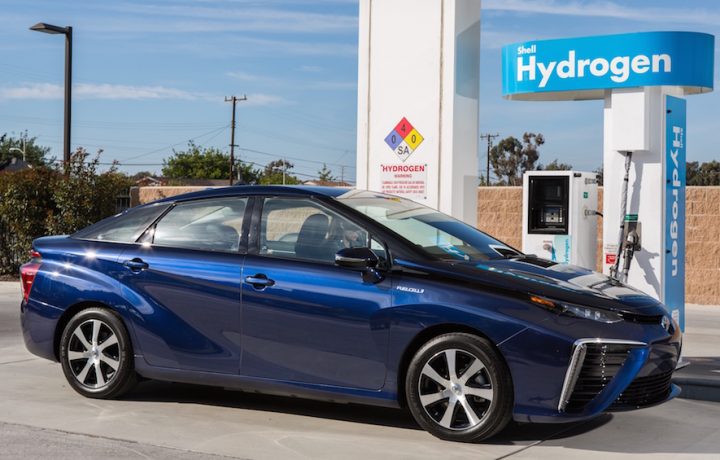Hydrogen cars could rewrite the standard vehicle depreciation curve, members of the Vehicle Remarketing Association heard at their monthly meeting last week.
Held at the Swindon offices of fleet management specialist Arval, the meeting took a look at developments in hydrogen technology, availability of cars and likely sales. The town is the centre of the UK’s largest hydrogen trial for vehicles, business and homes.
Speakers included Clare Jackson of Ecuity Consulting on the Swindon Hydrogen Hub, Paul Marchment of Arval on the company’s hydrogen fleet car trial and John Hunt of Toyota on motor manufacturer progress in developing hydrogen cars.
Jon Hunt, manager, Toyota and Lexus fleet marketing, said, “In the case of a hydrogen fuel cell vehicle, the traditional residual value model no longer applies as unlike combustion engine or battery power trains the fuel cell does not wear out, extending the life and value of a vehicle with relatively low cost cosmetic refurbishment.
“As the vehicle also has all the advantages of quick refuelling and zero emissions, it is the most convenient and future proof technology available.”
Glenn Sturley, chair at the VRA, which represents organisations that process 1.5 million cars for remarketing every year, added that the meeting had shown members that, while some years from market as a viable choice, hydrogen cars offered a whole range of advantages.
“There are two main factors that need to be resolved – vehicle pricing and a fuelling infrastructure. Clearly, these will not be overcome in the short term but it is not unlikely that we could see hydrogen start to make a general push onto the market within a few years.”
Toyota Mirai hydrogen cars were available for VRA members to try and the general impressions reported were favourable.
Glenn added, “These are cars that offer the drivability of an EV but can be fuelled as quickly as a petrol or diesel car, plus have zero emissions at the point of use and can potentially be powered by localised generation. Their advantages are obvious.”
Fleet supplier Arval is convinced that in the short-term, diesel remains instrumental in the reduction of CO2 emissions.
Continued use will give time for manufacturers to make the necessary investment for the production of alternative and affordable vehicles, and for public authorities to develop the required infrastructures.
Petrol, and more importantly hybrids, also have an important role to play, as we wait for greater availability of full electric vehicles and the supporting infrastructure. In the meantime, Arval’s experts take a view that in the right circumstances, full electric vehicles can provide a good option.
“It was important for us to make an inventory of energy uses, while the world is experiencing an unprecedented transition in this area” explains Phillipe Bismut, CEO of Arval.
“This approach is beneficial in supporting our clients towards even more appropriate solutions, but also in bringing a more global reflection on the mobility of tomorrow.”
Arval’s approach is therefore to facilitate the ecological shift for its customers by adapting its processes to ever changing-regulations. In this sense, the leader in multi-brand vehicle leasing is revising its method of calculating Whole Life Costs, including new driver segmentation and driving and location models.
Arval is also taking into account new alternatives such as vehicle sharing, which are effective additions to the use of the private car.

